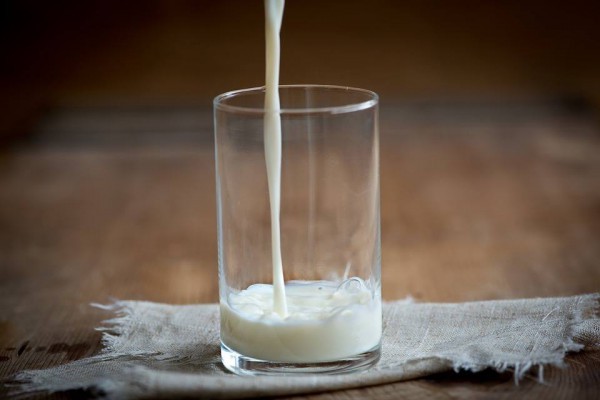My first thought was, it must be some kind of new milk alternative. I mean, cow’s milk is cow’s milk, right? You don’t get different kinds of milk from different breeds of cow.
But I was wrong. (Sort of.) Here’s what I learned:
Let’s Start From the Beginning….
First off, a little science background. Milk and many dairy foods contain high quality protein that fuels our body, helping to build and maintain muscle. Dairy protein is made up of two main parts: casein and whey. You’ve maybe heard of whey protein for its use in sports nutrition but lesser known is casein. There are different types of casein, A1 and A2 are two common types found naturally in milk.
What exactly is A2 milk?
Some cow breeds produce only A1 casein, others only A2, while most have a combination of both proteins. (Regular milk sold in the United States does include a mix of both proteins, so this likely what you’re buying at the grocery.)
“A2 milk” comes from certain dairy cows that have only the A2 type of dairy protein in their milk. That’s it. It’s all about their cow family genes.
So why drink it?
The theory is, milks containing the A1 protein may cause inflammation and therefore some stomach discomfort and other symptoms that may feel like lactose intolerance. It’s been suggested that A2 milk is easier for our bodies to digest and therefore, doesn’t cause those symptoms.
It’s essential to remember however, that the difference in how each type of protein is digested is still a theory. With only a couple of studies done on this topic, there isn’t enough evidence for nutrition experts to encourage a switch to A2 cows milk only.
More importantly, dairy milk – regardless of type – offers essential nutrients and milk and milk products have been associated with a reduced risk of cardiovascular disease, type 2 diabetes and with lower blood pressure in adults.
Is it healthier than other types of cow’s milk?
Looks like the science is still out on that one given the lack of research available. As a Registered Dietitian, I love to have more choices available for people, making it easier to meet their nutritional needs. I welcome innovation in the dairy aisle and I’ll continue to recommend 3 servings of dairy daily based on an individual’s needs and what sound science tells us is most appropriate. And of course, I’ll be watching with interest.
Looking for more info on A2 milk? Check out what dairy science experts have to say.

